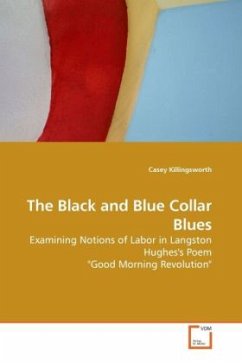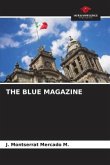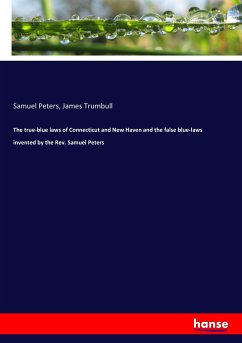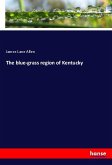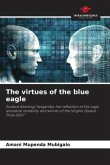This book examines the notion of labor in Langston
Hughes's "Good Morning, Revolution," a poem that
calls the world's workers to revolution against the
ruling class. Beyond a mere critical look at the
poem, however, or only an attempt to extract a
particular theme, it is an evaluation of the critical
criteria that are traditionally utilized to address
such literature, especially literature of
marginalized authors. Hughes's poem has not weathered
time well; for the most part it has been relegated to
obscurity. In looking at whether or not the poem has
been fairly treated, it is prudent to at least
examine the template that has passed on this literary
judgment in order to determine if the poem is just
bad, or perhaps, instead, its value rests hidden
beyond the reach of the template.
In this assessment, Hughes's poem is contrasted with
Carl Sandburg's "Good Morning, America," a poem
Hughes takes to parody in constructing his own work.
Also employed is Toni Morrison's idea that while the
black voice in American literature has certainly not
been commensurate with the historiography of
America, even in silence that same voice has
influenced the literary canon.
Hughes's "Good Morning, Revolution," a poem that
calls the world's workers to revolution against the
ruling class. Beyond a mere critical look at the
poem, however, or only an attempt to extract a
particular theme, it is an evaluation of the critical
criteria that are traditionally utilized to address
such literature, especially literature of
marginalized authors. Hughes's poem has not weathered
time well; for the most part it has been relegated to
obscurity. In looking at whether or not the poem has
been fairly treated, it is prudent to at least
examine the template that has passed on this literary
judgment in order to determine if the poem is just
bad, or perhaps, instead, its value rests hidden
beyond the reach of the template.
In this assessment, Hughes's poem is contrasted with
Carl Sandburg's "Good Morning, America," a poem
Hughes takes to parody in constructing his own work.
Also employed is Toni Morrison's idea that while the
black voice in American literature has certainly not
been commensurate with the historiography of
America, even in silence that same voice has
influenced the literary canon.

